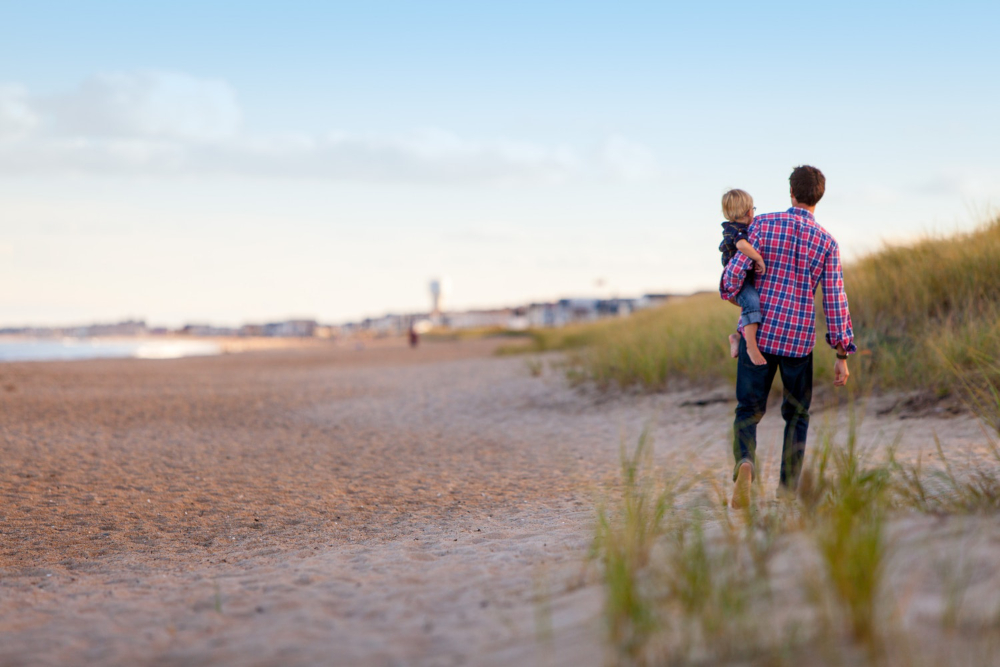
Are you good at regulating your everyday stress and anxiety levels? If not, how might your parents have played a role in your self-regulation skills (or lack of)?
A lot of what we learn in life – including how we regulate our stress and emotions – is picked up by what we observe from others when we are developing at a young age.
Our parents and upbringing can play one of the biggest roles in what habits persist later in our lives. This is why paying attention to family patterns is so essential for learning how to improve yourself and changing unhelpful behaviors.
If you’re an easily stressed-out or anxious person, there’s a good chance that at least one of your parents is/was also an easily stressed-out or anxious person.
First, if they are a biological parent, then it’s likely you share some of the same genes that are associated with a higher risk of stress and anxiety. That’s definitely a factor in human behavior that can’t be ignored.
Secondly, it’s also likely that you picked up similar habits or behavioral patterns from your parents that contribute to your increased levels of stress and anxiety.
Identifying and being aware of how your parents manage their stress and anxiety is key, especially how it has influenced how you manage stress and anxiety in your own life. In what ways are your approaches similar?
Interestingly, according to one new study published in Journal of Childhood and Adolescent Psychiatry, researchers discovered that giving treatment to parents of children with anxiety was just as beneficial as treating the kids themselves.
This is because parents learned healthier ways to respond to their child’s stress and anxiety in the moment, as well as set a better example in their own behaviors.
For example, when parents are overly cautious and protective over every little thing, that often sends a signal of “danger” to the child and just increases their overall stress and anxiety levels.
Have you ever seen a young toddler fall to the ground, get right back up, and is completely fine… but then the parent comes rushing over and shrieks “ARE YOU OK?” – and it isn’t until that moment that the toddler begins feeling threatened and starts crying?
That’s how powerful a parent’s reaction can be when it comes to influencing their child’s stress, anxiety, and pain. Children are constantly looking at their parents (and other authority figures) to see how they should be responding to a situation.
Of course, this same principle holds true for adults as well. We are always looking to others to see how we should respond to a situation. And at an unconscious level, emotions can be very contagious.
We are social learners by nature (“monkey see, monkey do”), and at the earliest stages of our lives our parents are often our biggest role models when it comes to learning how to respond to different situations in our lives.
How Our Parents Teach Us How to Be Stressed and Anxious
Here is a quick breakdown of the main ways our parents and upbringing influence how we respond to stress and anxiety in our everyday lives.
- We watch how they respond to their own stressful situations. When you were young and your parents made a mistake, how did they typically respond to it? Did they shake it off quickly and remain calm, or did they overreact, yell out-loud, and dwell on it for the rest of the day? In general, how we see our parents respond to their own frustrations is ultimately how we first learn to respond to our own frustrations.
- We look to them to see how we should respond to our own experiences. When something unexpected or unpleasant happens to you and you’re really young, you often look to your parents to see what you should do or how you should respond to it. If they always overreact to your minor hiccups in life (which many over-protective parents do), then you’re going to gradually learn how to overreact to these events as well.
- We pick up their health-related habits (diet, exercise, sleep). Physical health is another big influence over our overall stress and anxiety levels, and our parents often influence what health habits we continue into adulthood. We grow up eating what they eat, learning how often to exercise through them, and following similar sleeping routines. We are also susceptible to pick up any alcohol or substance use habits they had while they were raising us. All of these things can influence our physical and mental health in a major way.
- We learn from them how to spend our free-time and leisure time. Healthy leisure time is crucial for managing our overall stress and anxiety levels. If we don’t know how to step back and take a break every now and then, then we’ll always feel a bit overwhelmed and frustrated. How did your parents spend their free-time? What did they do to relieve stress and unwind? This likely has influenced the ways you try to relieve stress as well.
These are the main ways our parents teach us how to respond to stress and anxiety.
Are you good at regulating your everyday stress and anxiety levels? If not, how might your parents have played a role in your self-regulation skills (or lack of)?
Enter your email to stay updated on new articles in self improvement:
